How To Start Writing In A Journal
Ask any lifelong journaler, and they'll tell you a diary is more than a notebook. It's a survival tool, a meditation practice, and a record of a life, all in one. "My journal is my first place I go to process. I don't know what I would do if I couldn't write my way through really sticky situations," writer Jeanna Kadlec tells OprahMag.com.
A journaling practice has become especially essential for many during the pandemic. Living alone and trying to create a routine, publicist Sydney Tillman made journaling a daily habit for the first time in 2020. "It became the thing that would get me out of bed," Tillman says. Reflecting on her archive of entries, Tillman sees evidence of "growth and progress" during what she called an "awful" year.
Science supports the anecdotal evidence of journaling's positive effect on mental health. According to Dr. Elizabeth Gilbert, the Head of Research at PsychologyCompass, "decades of research" back up the benefits of journaling when it comes to reducing anxiety, easing depression, working through trauma, and setting goals. "If there are stressful things happening in your life, journaling trains you to stop, react, and make sense of it all," Gilbert says. "Even just make a narrative about it. Tell it in a story in a way that makes sense."
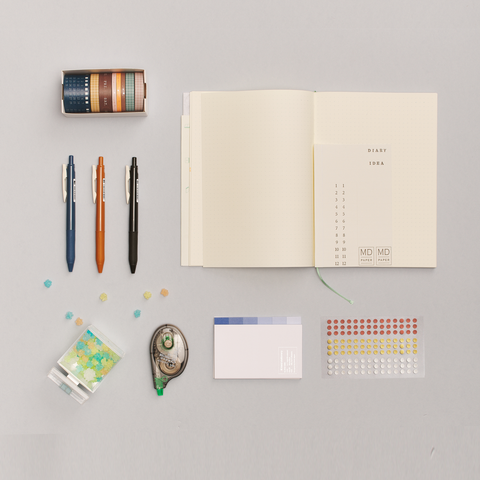
Bullet Journal Starter Kit
For all its purported benefits, though, creating a regular journaling habit can seem daunting for those of us who haven't been scribbling away since middle school. Starlet Susilo, owner of the boutique stationery company BonBon Paper, says many customers are "overwhelmed" by the possibilities of the blank page—especially given the plethora of beautiful (but ambitions) examples of watercolor-filled bullet journals on blogs and Pinterest.
"Forget about being perfect. Just get started," Susilo tells customers. "This is just for you. It's a private experience." Katherine Smith, a 24-year-old recent college graduate, agrees. "Once I realized my journal was truly for-my-eyes-only content, I was able to really relax into the experience and say what I needed to say for myself within the pages without my inner critic jumping out," she says.
Given that writing in a journal is such a personal experience, it may take some experimentation to find what works for you (and which type of actual journals you prefer). Below, find some of the best tips and example entries for beginners looking to start a journaling practice, sourced from the pros themselves.
This content is imported from {embed-name}. You may be able to find the same content in another format, or you may be able to find more information, at their web site.
Create a writing routine that works for you.
Gilbert says to experience the most benefits of journaling, consider writing regular entries. The consistency of the routine matters more than the length of each entry. "Start with a goal for your journaling that feels realistic," she says.
Ultimately, she recommends making writing a daily practice akin to brushing your teeth. Kadlec, for example, writes at the same time every day: After coffee, but before picking up her phone. Writer Anika Fajardo writes at night. Before the pandemic, storyteller and podcaster Micaela Blei used to write on the subway.
But don't punish yourself if you break the schedule.
A writing routine is great, but Gilbert cautions against sticking to a dogmatic schedule if it doesn't feel right, or if there's simply no time—a sentiment many journalers echo. Alex Stern, a radio producer from Philadelphia, was discouraged from journaling after failing to meet her goal.
"I'd find myself starting off my entries with excuses why I hadn't written, which aren't interesting to write or come back to later. I'm more likely to write when I know I don't have to torture myself through the beginning of the entry explaining where I've been," she says. Now, Stern sticks to writing when she feels excited, and making sure to do a catch-up entry when necessary.

.
Make Living Well a Daily Practice with Oprah's The Life You Want™ Planner
If you're stumped, use prompts to start your first journal entry.
The blank page can be invigorating—or it can be stress-inducing. One way to start the page is with a one-time, self discovery-oriented prompt, or a prompt that you repeat each entry. Susilo offers her customers at BonBon Paper a few techniques when they purchase notebooks.
- The "Thank You" Note Journal: Begin each entry with a sense of gratitude by writing a note of thanks.
- The Future Journal: Building on the idea of manifestation, Susilo recommends detailing your dreams, and imagining how it'll feel when you achieve those goals.
- The Morning Show: Each morning, jot down a to-do list, concerns, and lingering thoughts. "This frees up your brain to focus on the 'here and now,'" Susilo says.
Wedding planner Jordan Maney begins her near-daily entries with a list of five questions: What do I want to do? What do I need to do? Who wants to help me? How do I feel? How can I step outside of my comfort zone today? "For the following journal entry, I'll answer the questions and respond to the previous ones. Did I do what I wanted?" Maney says.
Or, write a new list a day.
Journal entries are typically conceived of as being long-form paragraphs, but that doesn't need to be the case. "It can be intimidating. How do I know what to talk about? Am I supposed to retell the entire conversation first and then say how I feel?" Blei says—which is why she's taken to writing lists. "Lists can be non-threatening. They don't feel like you're writing an essay or telling every detail of something."
To begin, Blei recommends placing ten entries under topics like, "Things I'm Feeling Good About" or "Things That Worry Me."

TravelCouples Getty Images
Time yourself while writing each entry.
Starting a diary entry can be complicated—and so can ending one. Kadlec says beginners might find luck in timing their entries. "If you approach journaling like a mindfulness practice like meditation, then you only have to do it for two minutes, or five minutes," Kadlec says. Through this method, people can build a habit in shorter increments.
Try the Morning Pages method.
Julia Cameron's seminal book, The Artist's Way, popularized the concept of Morning Pages—three daily pages designed to get people in touch with their creative sources. Morning Pages are distinguished from typical journal entries by their deliberately stream-of-consciousness writing style, and from when they're written: Always in the morning, ideally in bed just after waking.
For the past four-and-a-half years, book critic Bethanne Patrick has started her days with Morning Pages, altered slightly to fit her schedule. "The reason I journal in the morning is because I almost always get somewhere I didn't expect to get. It's very powerful. I learn a great deal about myself which feeds the rest of my day. The morning pages help me center myself," Patrick says.
Invest in a notebook and pens that you like.

PaperMate InkJoy Pens
Paper Mate amazon.com
$14.98
Kadlec swears by Moleskins. Stern prefers Leuchtturm journals for their lined pages. Blei likes her miniscule (and hyper portable) Muji notebooks so much that she called the company's corporate headquarters to order them wholesale. Everyone has a favorite notebook—the key is finding one that works for you.
Smith cautions against going for the most beautiful notebook on the shelf. "Leatherbound journals feel too official and dignified for writing my thoughts down. I psych myself out from using them. Pick a journal that you feel comfortable actually using," she says.
Then, find writing utensils that make the process enjoyable. "The nicer the pen, the more fun it is to write," Fajardo says. For Maney, that means investing in colorful Zebra highlighters, which she uses to mark up past entries. "This sounds corny, but I'll update myself," Maney says. "Say I was having a particularly difficult situation with a gentleman. I'll write, 'Oh, it all worked out.'"
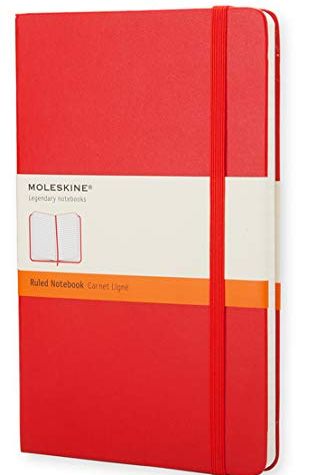
Moleskine Classic Notebook
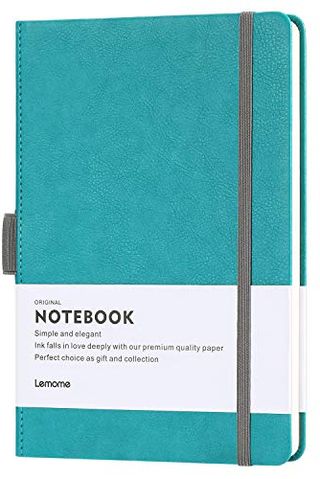
Thick Classic Notebook with Pen Loop
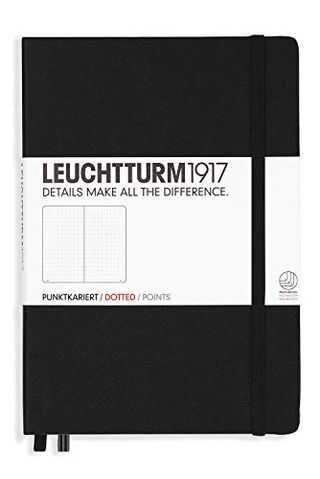
Leuchtturm1917 Dotted Hardcover
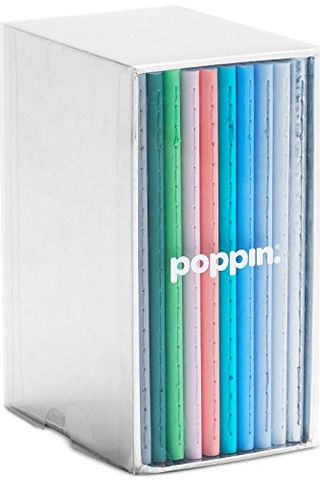
Assorted Soft Cover Notebooks
A journal can take many forms.
Notebooks are not the only place to record your thoughts. Patrick types her morning pages on her computer and often discards the 600-800 words she writes. Tillman uses the Notes app in her phone to catch stray thoughts. Months into the pandemic, Blei began recording audio diaries and leaving messages for her future self. "It works the same way as rereading journal entries, but it's more intentional," Blei says.
Keep at it to build the habit.
Ultimately, forming a habit requires repetition. Patrick compares her daily writing practice–which she started later in life—to yoga or muscle-building. "You don't get worse," she says. "You just get better. You're improving. That's what journaling does. If you can start a habit like journaling and you can say, Every day I write, what an amazing thing."
For more ways to live your best life plus all things Oprah, sign up for our newsletter!
This content is created and maintained by a third party, and imported onto this page to help users provide their email addresses. You may be able to find more information about this and similar content at piano.io
How To Start Writing In A Journal
Source: https://www.oprahdaily.com/life/a35231175/how-to-start-a-journal/
Posted by: brownvesect1978.blogspot.com

0 Response to "How To Start Writing In A Journal"
Post a Comment